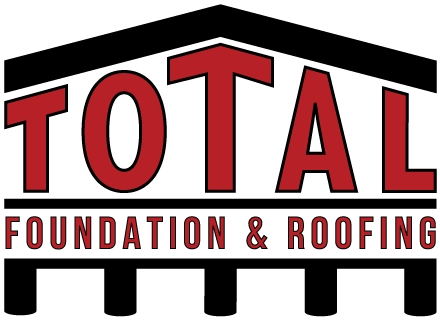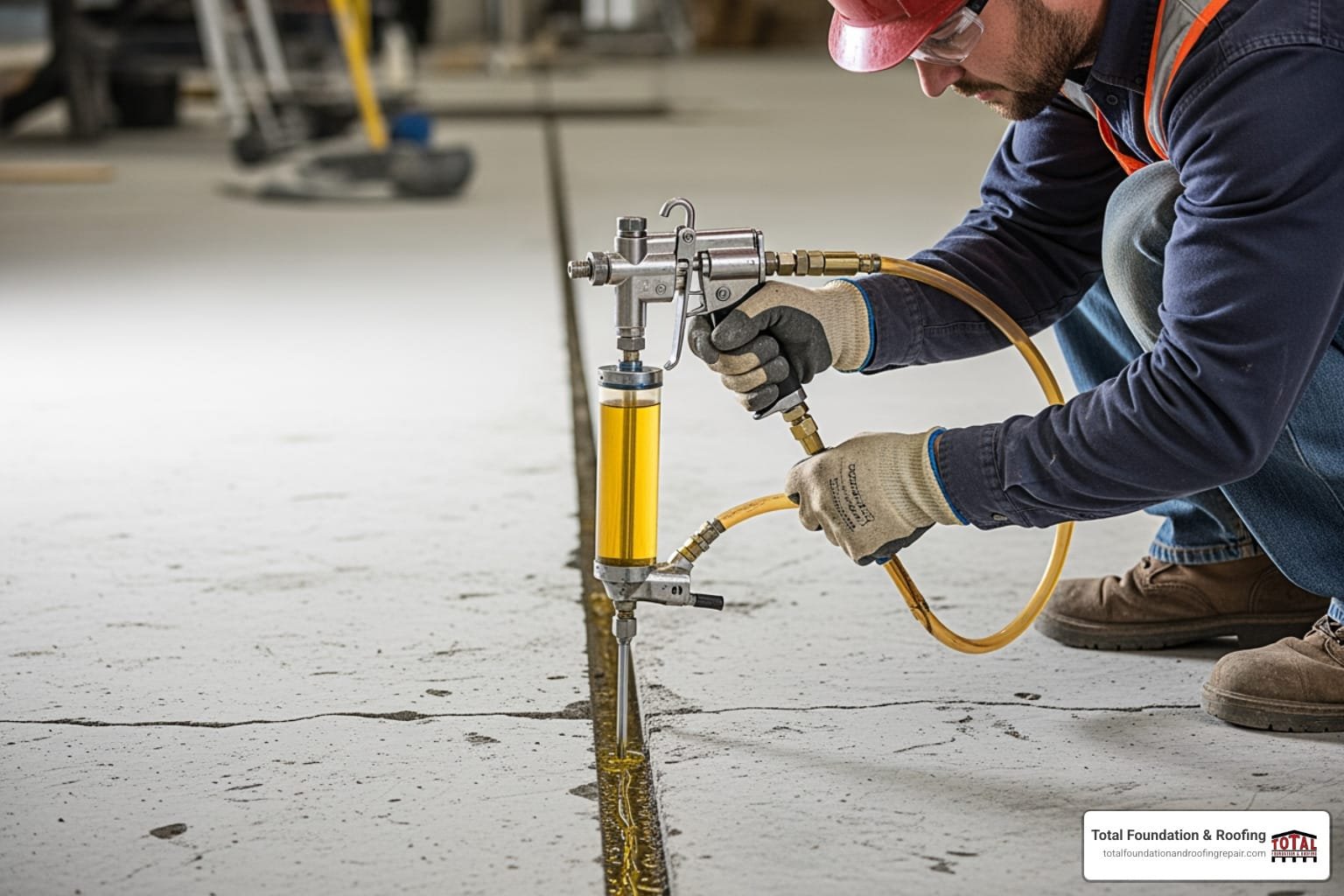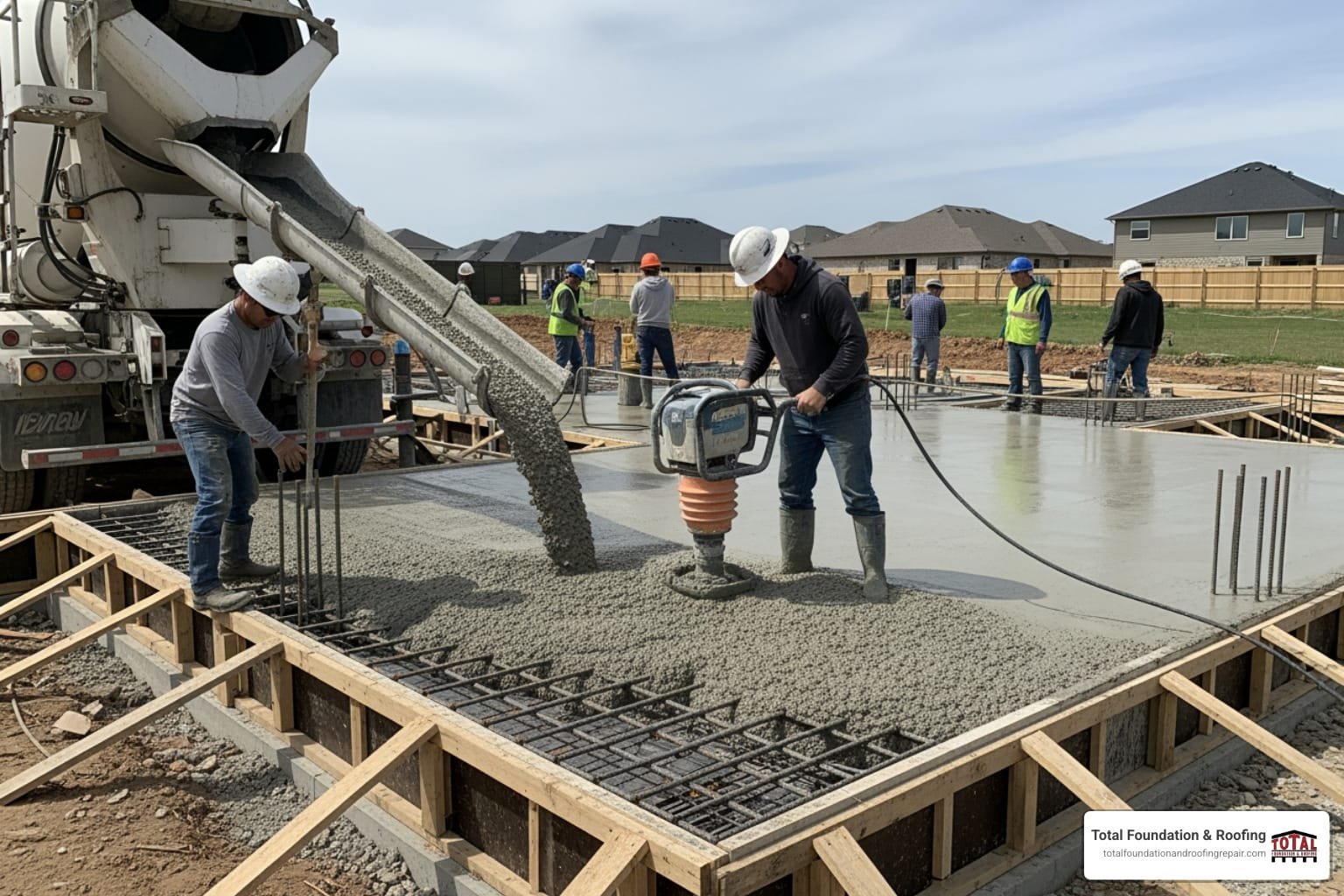Table of Contents
ToggleWhy Foundation Crack Repair Costs Matter to Texas Homeowners
For homeowners in the Texas Hill Country, understanding potential foundation repair expenses is key to protecting their property. At Total Foundation & Roofing, we help clients steer these challenges with clear information. Foundation crack repair costs typically range from $250 to $800 for minor issues, but major structural repairs can exceed $10,000. Budgeting for these costs helps prevent small problems from becoming costly emergencies.
Here’s a general cost breakdown:
- Minor Vertical Cracks: $250 – $800 per crack
- Structural Cracks: $1,000 – $30,000+
- Underpinning: $1,000 – $3,000 per pier
Costs are influenced by crack severity, foundation type, and repair method. Non-structural cracks under 1/8 inch are cosmetic, while horizontal cracks indicate serious issues. Due to the expansive clay soils in Texas, foundation problems are common. A timely professional foundation assessment can save you thousands down the road.
I’m Daniel Sowell, owner of Total Foundation & Roofing. With over 18 years of experience, I know that addressing foundation issues promptly is the most cost-effective approach for homeowners.
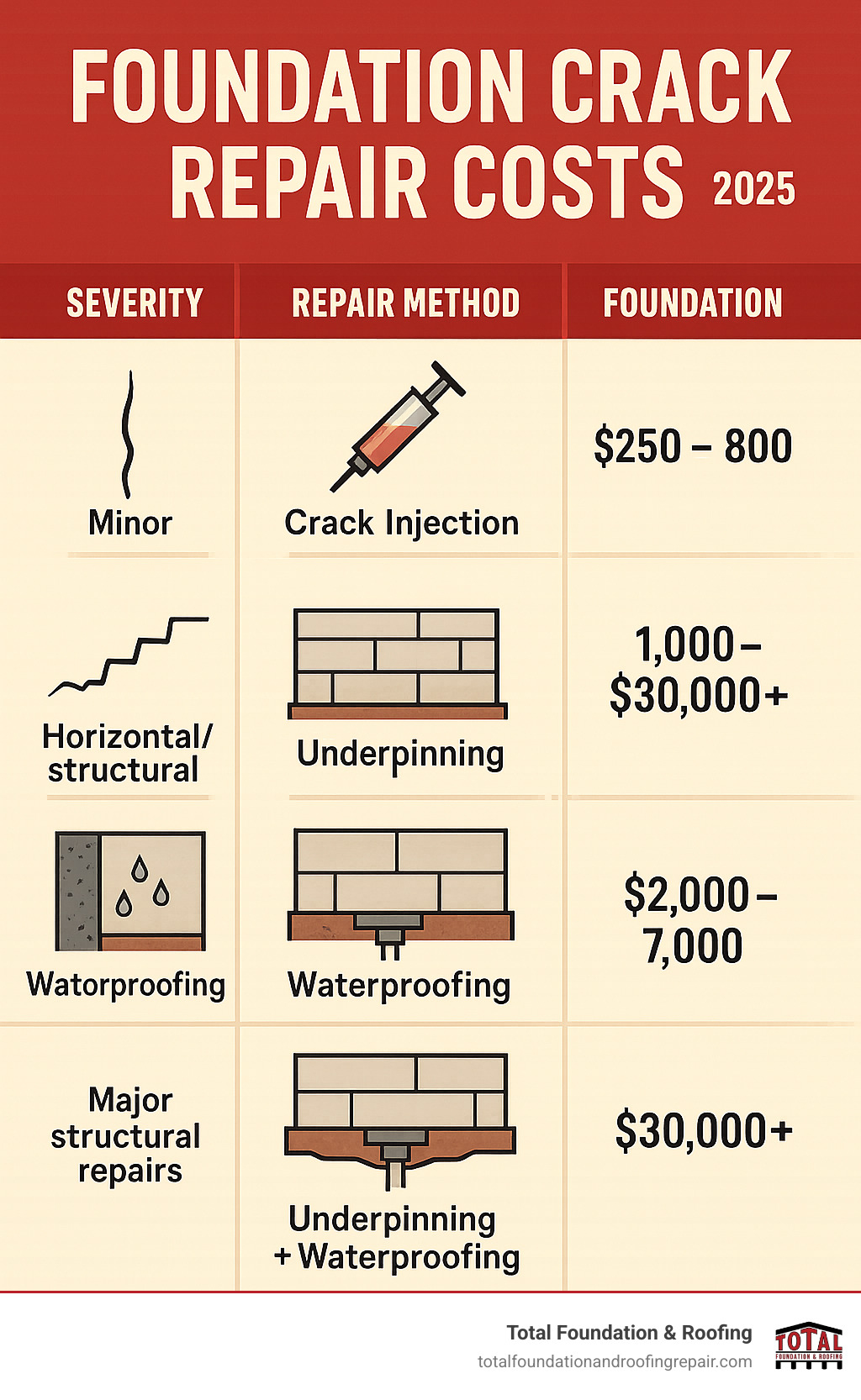
Key Factors Influencing Foundation Crack Repair Costs
The final price for fixing your foundation depends on several key factors, including the type of crack, the repair method, and your home’s construction. Let’s break down what impacts your foundation crack repair costs.
Crack Severity and Type: From Hairline to Structural
Knowing the difference between cracks is the first step in estimating potential costs.
Non-Structural Cracks (Hairline, Vertical, Diagonal): Typically less than 1/8 inch wide, these are often caused by concrete curing or minor soil settlement. While not an immediate structural threat, they can allow water intrusion.
- Cost: $250 – $800 per crack.
- Action: Monitor and seal to prevent moisture problems.
Structural Cracks (Stair-Step, Horizontal): These are serious warning signs. Stair-step cracks in block foundations or any horizontal crack indicate significant foundation movement or intense soil pressure.
- Cost: $1,000 – $15,000+, depending on severity.
- Action: Requires immediate professional assessment to prevent further damage.
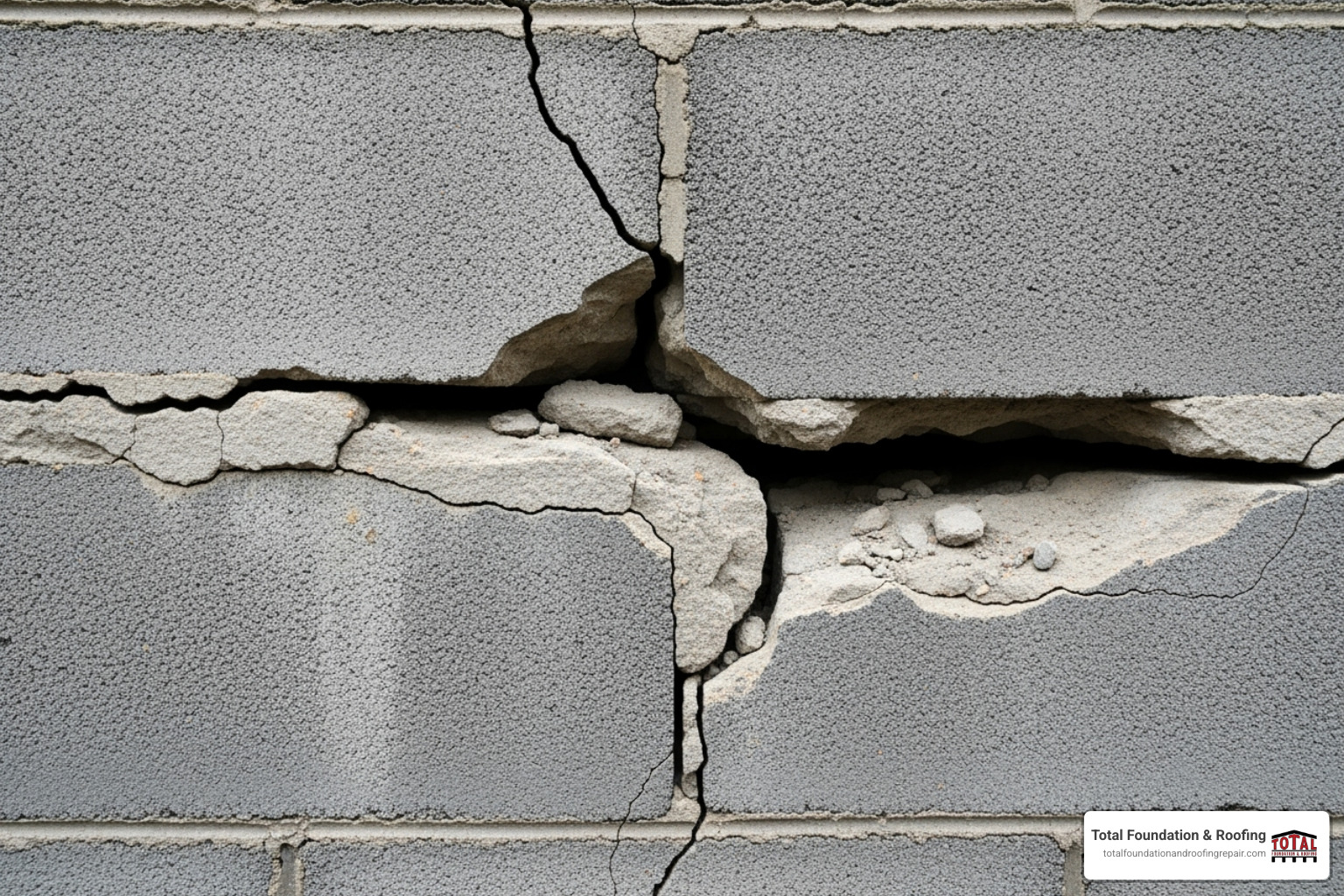
How Repair Methods Affect Your Foundation Crack Repair Costs
The chosen repair method directly influences the total cost.
Epoxy/Polyurethane Injection: Used for non-structural cracks in poured concrete. A resin is injected to seal the crack and block water. Polyurethane offers more flexibility for minor seasonal movement.
- Cost: $250 – $800 per crack.
Carbon Fiber Straps: These ultra-strong strips are bonded to bowing foundation walls to reinforce them and prevent further movement.
- Cost: $350 – $1,000 per strip.
Wall Anchors: Steel plates on the interior wall are connected to an anchor in the soil outside, counteracting external pressure and stabilizing bowing walls.
- Cost: $500 – $1,000 per anchor.
Underpinning (Piering): The primary solution for settling foundations. Steel or helical piers are driven into stable soil or bedrock to lift and support the foundation. This is a major structural repair.
- Cost: $1,000 – $3,000 per pier, with total project costs often reaching $10,000 to $30,000 or more.
Our team at Total Foundation & Roofing specializes in comprehensive Crack Repair and will recommend the most effective solution for your home.
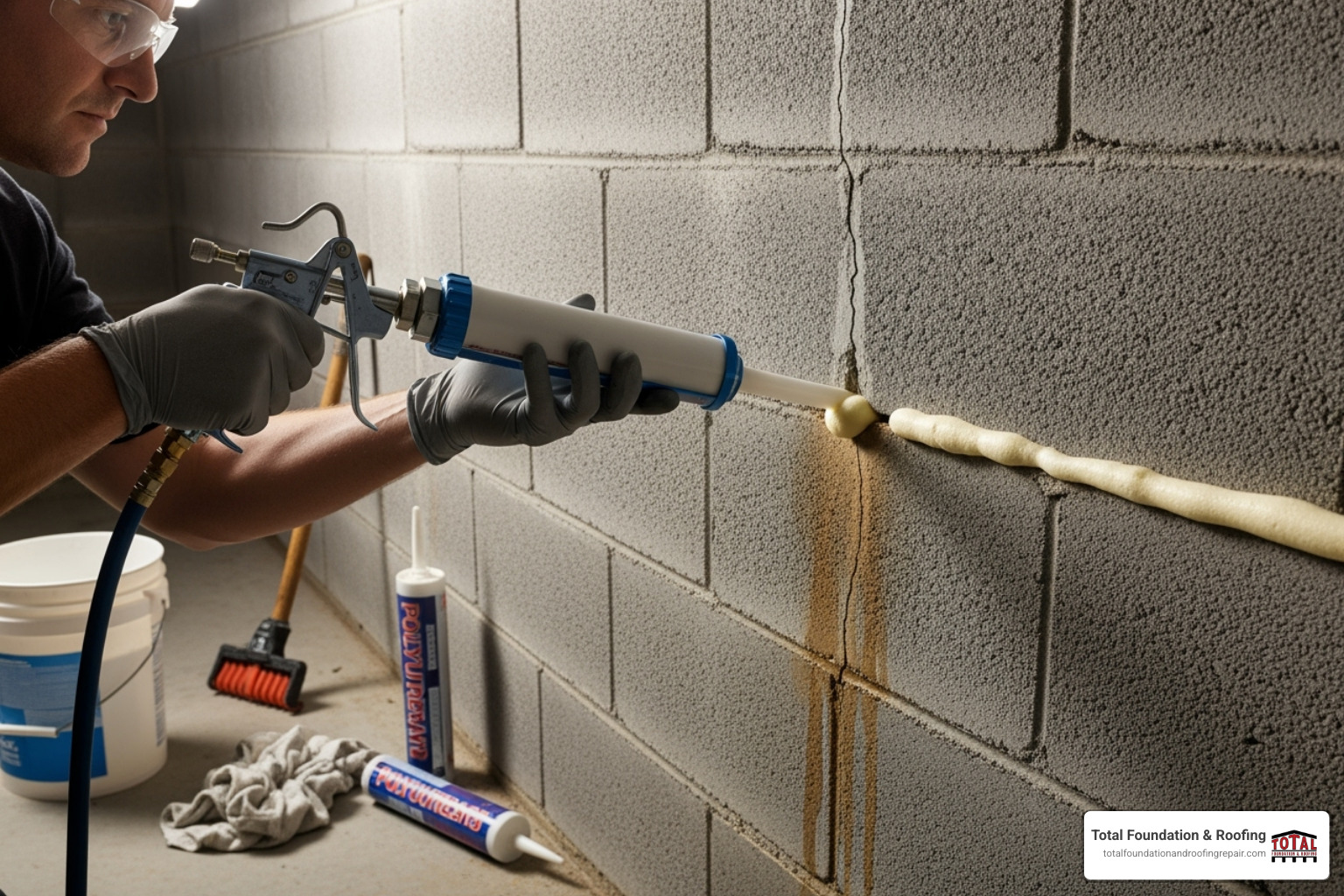
How Foundation Type Impacts Overall Foundation Crack Repair Costs
Your home’s foundation type dictates common issues and repair strategies.
- Concrete Slab: Common in Texas. Repairs often involve crack injection or slab jacking for settlement. Costs can range from $1,000 to $10,000 for structural issues.
- Basement: Prone to water pressure, leading to bowing walls and horizontal cracks. Repairs can be extensive, costing $5,000 to $30,000+.
- Crawl Space: Susceptible to moisture, wood rot, and pier settlement. Repairs may involve encapsulation, pier replacement, or drainage improvements, costing $1,500 to $15,000.
- Pier and Beam: Common in older homes. Issues include wood decay and settling piers. Repairs often involve shimming or replacing piers and beams, with costs from $2,000 to $15,000+.
- Cinder Block: Prone to stair-step and horizontal cracks. Repairs often require reinforcement with carbon fiber or steel.
Other critical factors influencing your foundation crack repair costs include:
- Soil Conditions: The expansive clay soils in the Texas Hill Country put immense stress on foundations, often requiring drainage solutions as part of the repair.
- Accessibility: Hard-to-reach areas increase labor time and costs.
- Labor: Skilled labor averages around $200 per hour and is a significant portion of the total cost.
- Permits: Structural repairs require permits, which can cost from $75 to over $1,000.
Long-Term Value: Prevention, DIY Risks, and Professional Solutions
Understanding upfront foundation crack repair costs is just one part of the equation. Protecting your home’s long-term value requires proactive measures and smart repair choices to secure your investment.
The High Price of Procrastination
Putting off foundation repairs is a costly mistake. A small crack can quickly escalate, leading to a cascade of expensive problems.
- Worsening Structural Damage: A minor issue can evolve into a major threat to your home’s stability, turning a simple injection repair into a large-scale underpinning project.
- Increased Repair Expense: The longer you wait, the more complex and expensive the solution becomes. A $500 fix can easily become a $15,000 emergency.
- Decreased Property Value: Unrepaired foundation issues are a major red flag for buyers and can lower your home’s value by up to 20%.
- Moisture and Mold: Cracks allow moisture to enter, creating a breeding ground for mold and mildew, which can damage your home and pose health risks.
- Pest Infestation: Cracks provide easy entry for insects and rodents.
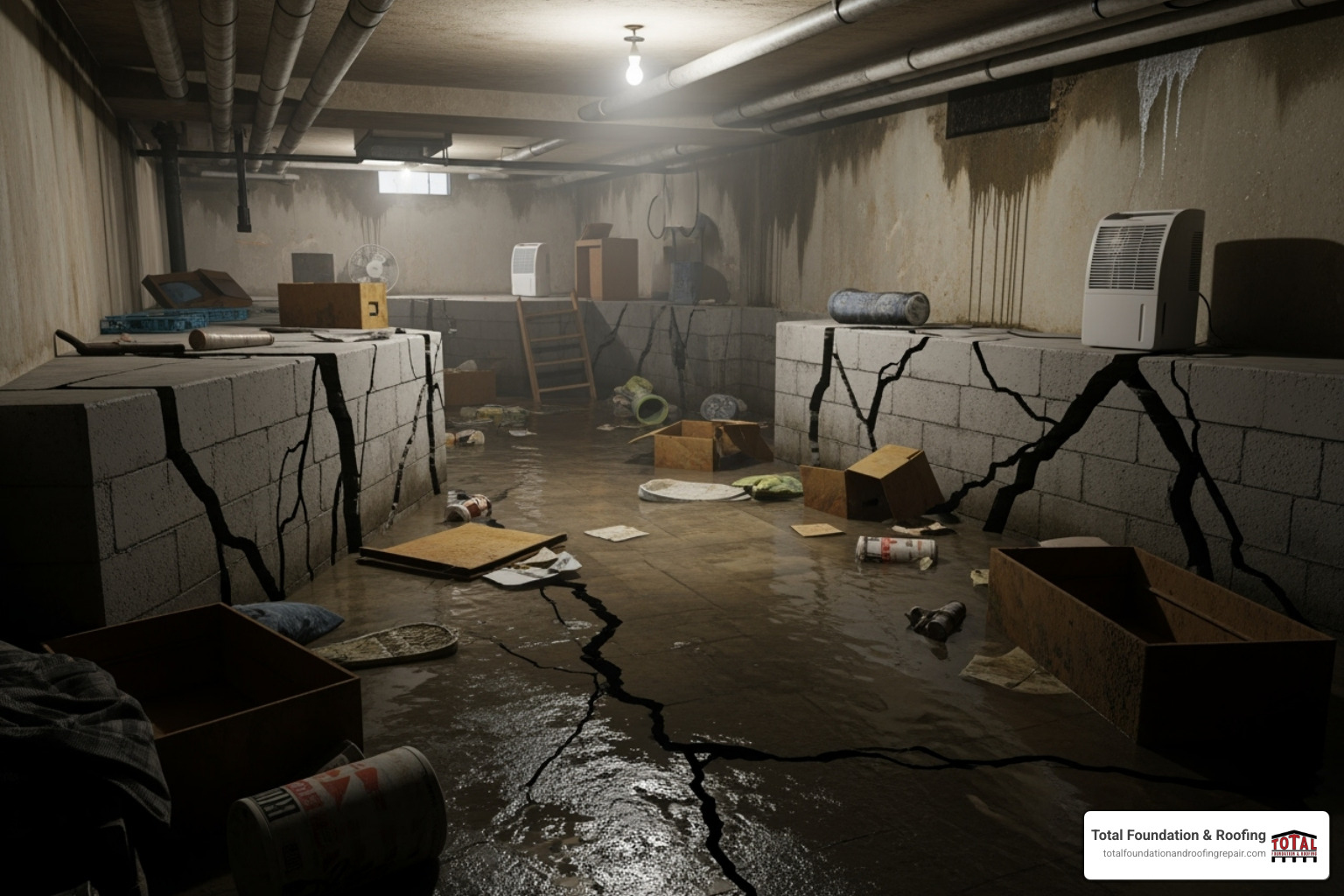
DIY vs. Professional: A Cost-Benefit Analysis
While a DIY kit ($20-$100) might seem tempting for a tiny hairline crack, the risks often outweigh the savings for anything more significant.
DIY Risks:
- Treating the Symptom, Not the Cause: A DIY patch covers the crack but doesn’t address the underlying issue, like soil pressure or poor drainage. The problem will likely return.
- Improper Repair: Without the right expertise and tools, a DIY fix can fail or even worsen the damage, leading to more expensive professional corrections later.
- No Warranty: Professional repairs come with a warranty, giving you peace of mind. A DIY job offers no such guarantee.
When to Call a Professional:
You should always consult an expert if a crack is wider than 1/8 inch, horizontal, growing, or accompanied by other warning signs like sticking doors or bowing walls. A professional assessment ensures the correct diagnosis and a lasting solution, saving you money in the long run.
Protecting Your Investment: Prevention and Next Steps
The best way to manage foundation crack repair costs is to prevent them. Regular maintenance is your most effective tool.
- Maintain Proper Drainage: Ensure your yard slopes away from the foundation and keep gutters clean to direct water away from your home.
- Manage Soil Moisture: In the Texas climate, maintaining consistent moisture levels around your foundation can prevent soil from shrinking and swelling excessively.
- Mind Your Landscaping: Plant large trees and shrubs a safe distance from your home to prevent roots from damaging the foundation.
- Schedule Routine Inspections: A professional inspection every 3-5 years can catch problems early before they become major headaches.
At Total Foundation & Roofing, we provide lasting solutions custom to the unique challenges of the Texas Hill Country. Our expert assessments identify the root cause of foundation problems to ensure our repairs are effective and durable.
Don’t let potential costs deter you from protecting your home. If you see signs of foundation trouble, take the next step.
Request a Free Estimate from Total Foundation & Roofing today to secure your home’s stability and value for years to come.
